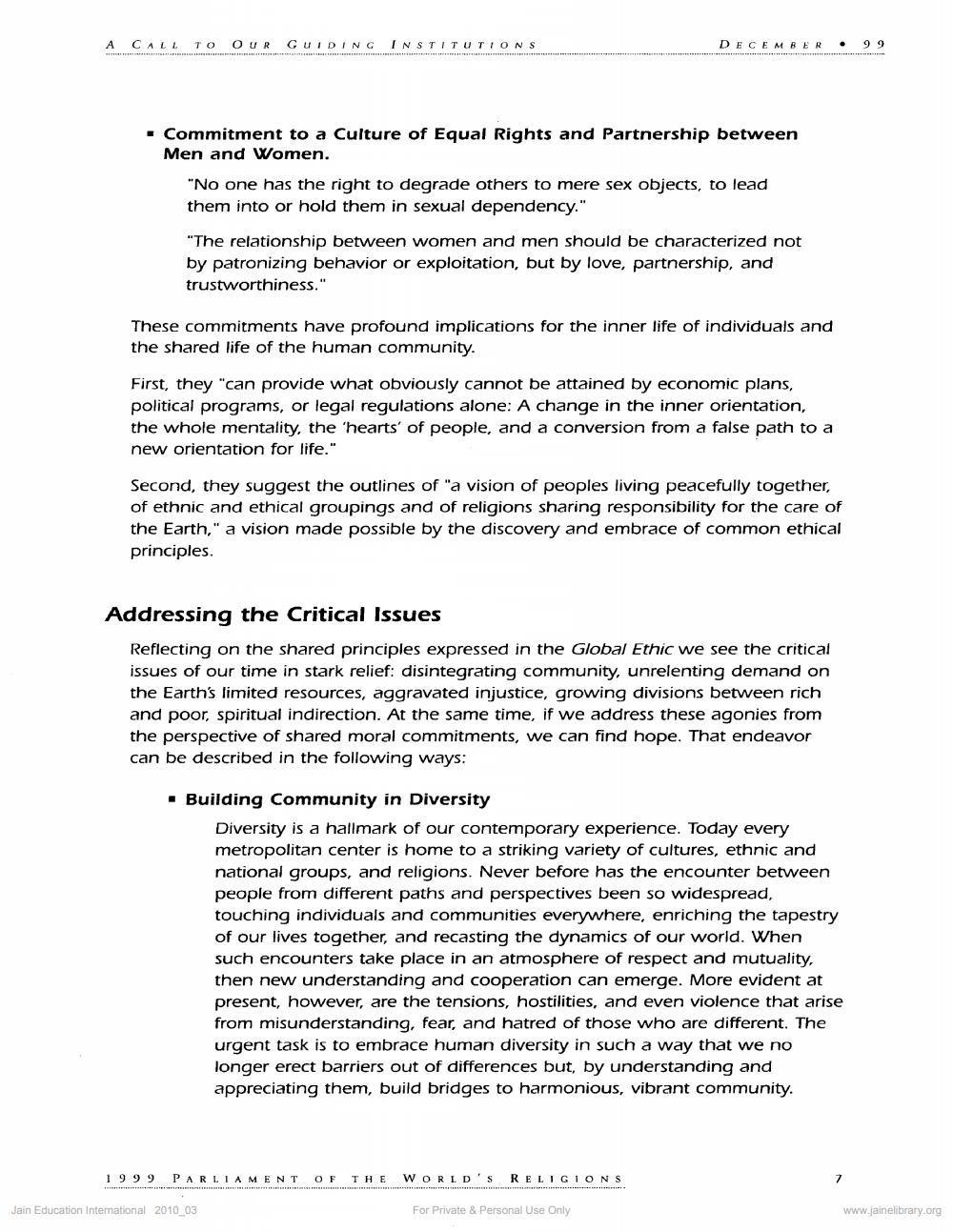________________
A
CALL TO OUR GUIDING INSTITUTIONS
■ Commitment to a Culture of Equal Rights and Partnership between Men and Women.
"No one has the right to degrade others to mere sex objects, to lead them into or hold them in sexual dependency."
"The relationship between women and men should be characterized not by patronizing behavior or exploitation, but by love, partnership, and trustworthiness."
These commitments have profound implications for the inner life of individuals and the shared life of the human community.
First, they "can provide what obviously cannot be attained by economic plans, political programs, or legal regulations alone: A change in the inner orientation, the whole mentality, the 'hearts' of people, and a conversion from a false path to a new orientation for life."
1999
DECEMBER
Second, they suggest the outlines of "a vision of peoples living peacefully together, of ethnic and ethical groupings and of religions sharing responsibility for the care of the Earth," a vision made possible by the discovery and embrace of common ethical principles.
Addressing the Critical Issues
Reflecting on the shared principles expressed in the Global Ethic we see the critical issues of our time in stark relief: disintegrating community, unrelenting demand on the Earth's limited resources, aggravated injustice, growing divisions between rich and poor, spiritual indirection. At the same time, if we address these agonies from the perspective of shared moral commitments, we can find hope. That endeavor can be described in the following ways:
Building Community in Diversity
Diversity is a hallmark of our contemporary experience. Today every metropolitan center is home to a striking variety of cultures, ethnic and national groups, and religions. Never before has the encounter between people from different paths and perspectives been so widespread, touching individuals and communities everywhere, enriching the tapestry of our lives together, and recasting the dynamics of our world. When such encounters take place in an atmosphere of respect and mutuality, then new understanding and cooperation can emerge. More evident at present, however, are the tensions, hostilities, and even violence that arise from misunderstanding, fear, and hatred of those who are different. The urgent task is to embrace human diversity in such a way that we no longer erect barriers out of differences but, by understanding and appreciating them, build bridges to harmonious, vibrant community.
PARLIAMENT OF THE
Jain Education International 2010_03
WORLD'S
RELIGIONS
For Private & Personal Use Only
99
www.jainelibrary.org




